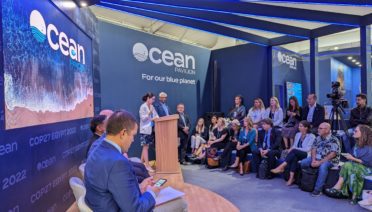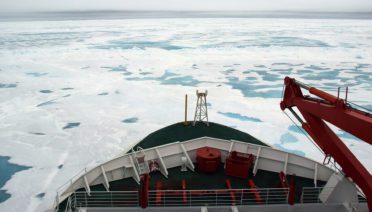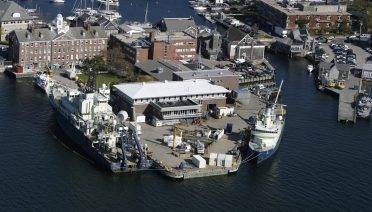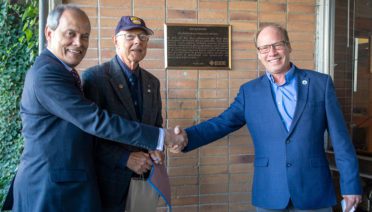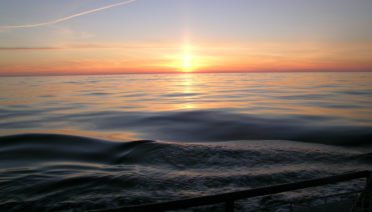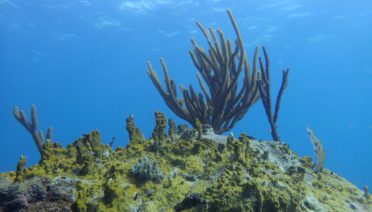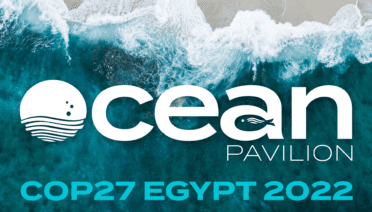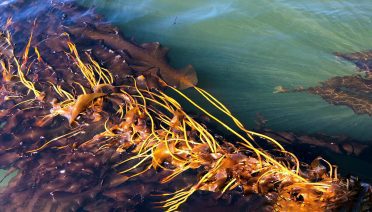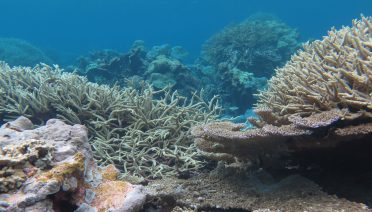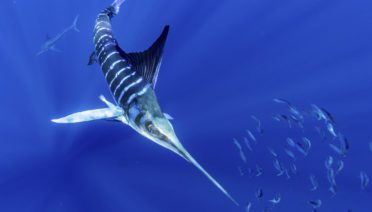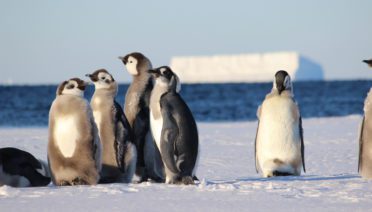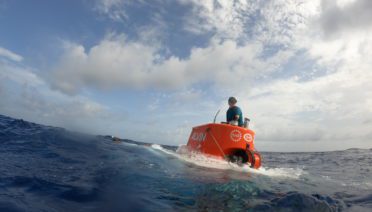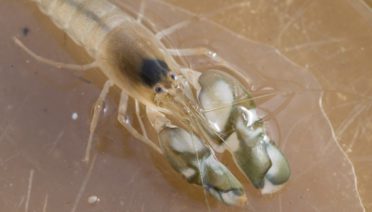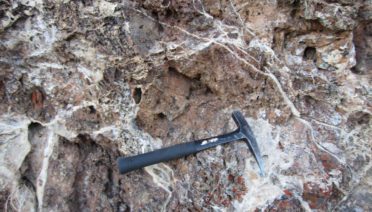Press Room
The Ocean Pavilion, the first time the ocean has been a singular focus of a pavilion inside the central “Blue Zone,” will host approximately 60 sessions over the two-week period, Nov. 6-18.
Funding is part of $3 million economic development package secured by Falmouth legislators.
When scientists discovered a hydrothermal vent site in the Arctic Ocean’s Aurora hydrothermal system in 2014, they did not immediately realize just how exciting their discovery was.
The Board of Trustees of Woods Hole Oceanographic Institution (WHOI) recently welcomed five new Corporation Members.
HOV Alvin recognized as one of world’s most important deep-sea scientific instruments
Woods Hole Oceanographic Institution among research groups that offer key findings to support federal protection of species, increasingly under siege by climate change
Unique partnership with Woods Hole Oceanographic Institution and veteran leadership team deploys vital capital to blue economy ‘narwhals’ at the nexus of ocean innovation, science and technology.
The study found that the organic chemical compounds produced through metabolism —known as metabolites or exudates—vary significantly by coral species and that the compounds impact the abundances and compositions of reef microorganisms differently.
Woods Hole Oceanographic Institution (WHOI) has been selected as a 2022 Mass Save™ Climate Leader; one of just 19 commercial and industrial organizations across the Commonwealth to receive this recognition.
Leading ocean science and philanthropic organizations to highlight the global ocean at UN climate conference
Resilient Woods Hole (RWH), a private/public collaboration to prepare the village and blue economy of Woods Hole for major climate impacts such as sea-level rise, coastal flooding, and shoreline loss, has been awarded a second grant from the Massachusetts Office of Coastal Zone Management to continue its work in implementing community climate resiliency solutions.
Woods Hole Oceanographic Institution (WHOI)-led teams earned Gold and Silver Innovation Awards for seaweed solutions projects, presented at the first annual Seagriculture Conference USA 2022 in Portland, Maine.
The National Science Foundation (NSF) has awarded Woods Hole Oceanographic Institution (WHOI) $5 million to participate in NSF’s ground breaking Convergence Accelerator Program. The project, led by WHOI scientist Anne Cohen, builds the world’s first Coral Reef Digital Twin, a 4-dimensional virtual replica of a living coral reef powered by state-of-the art data and models.
A new paper by WHOI researchers demonstrates a connection between personality and divorce in albatross
A new study led by scientists at Woods Hole Oceanographic Institution (WHOI) and University of Washington Applied Physics Laboratory (UW APL) finds that marine predators, such as tunas, billfishes and sharks, aggregate in anticyclonic, clockwise-rotating ocean eddies (mobile, coherent bodies of water). As these anticyclonic eddies move throughout the open ocean, the study suggests that the predators are also moving with them, foraging on the high deep-ocean biomass contained within.
Scientists at the Woods Hole Oceanographic Institution (WHOI) and European research institutions are calling for better protections for juvenile emperor penguins, as the U.S. Fish and Wildlife Service considers listing the species under the Endangered Species Act and the Commission for the Conservation of Antarctic Marine Living Resources (CCAMLR) considers expanding the network of Marine Protected Areas (MPAs) in the Southern Ocean.
WHOI announced the appointment of Yessica Cancel to its executive team in the newly created position of Chief People Officer (CPO)
After three weeks in the Puerto Rico trench and Mid Cayman Rise, Alvin is certified to return to research with its new max depth of ~4 miles
Research published by Woods Hole Oceanographic Institution (WHOI) scientists today in Frontiers in Marine Science confirmed their previous observations that rising temperatures increase the sound of snapping shrimp, a tiny crustacean found in temperate and tropical coastal marine environments around the world.
New evidence suggests that CO2-rich springs may be buffering quakes along areas of the San Andreas Fault

